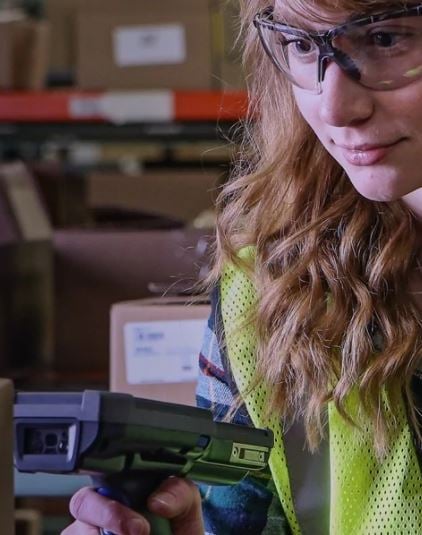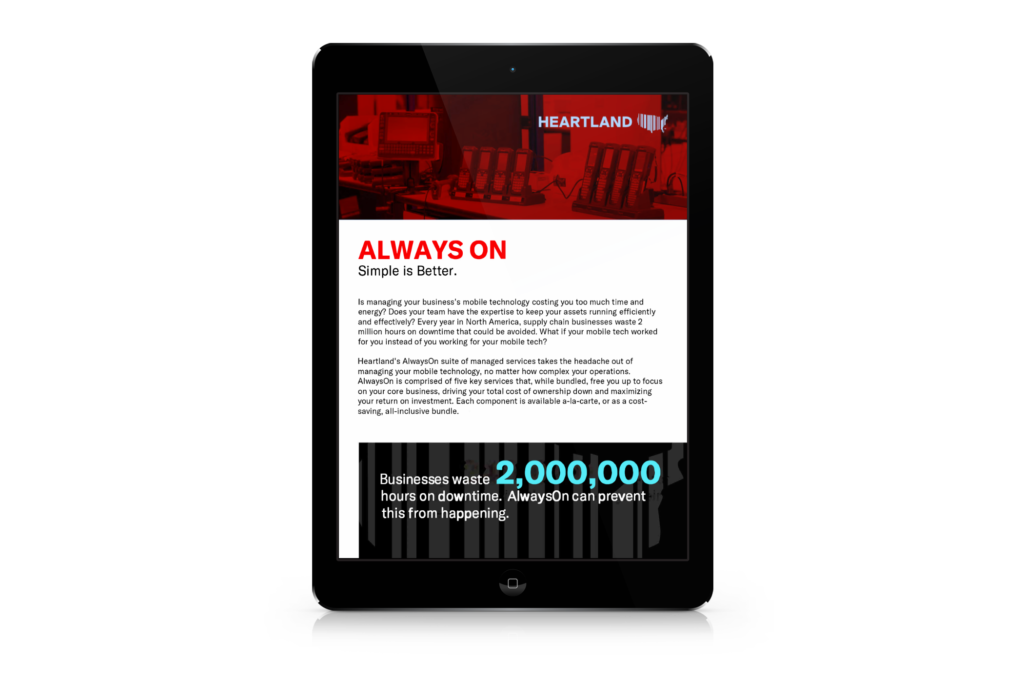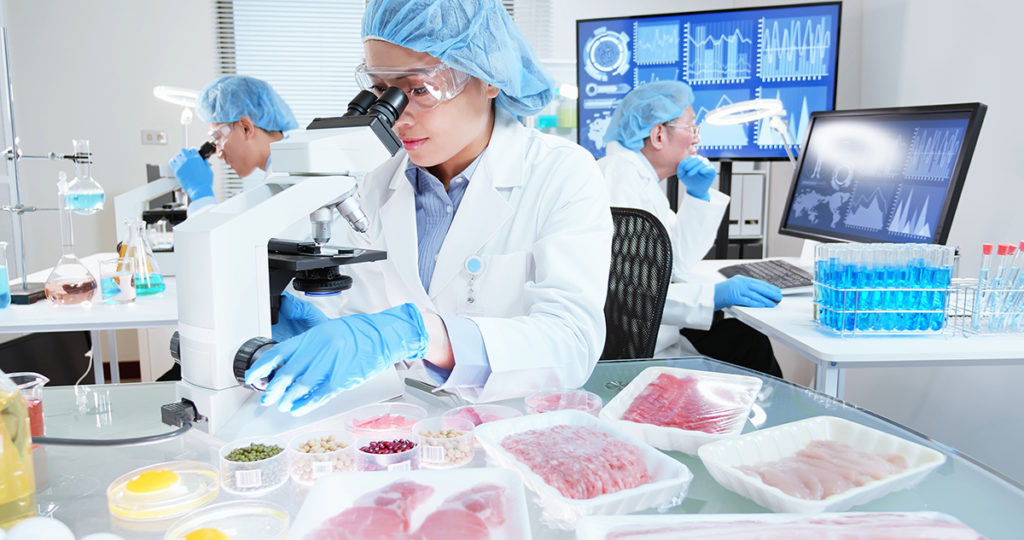HEARTLAND
Enterprise Mobility Management (EMM)
Software
SOTI MobiControl
SOTI MobiControl is a leading EMM solution.

Honeywell Workflow Solutions
Honeywell workforce and task management software solutions provide advanced data collection and analytics capabilities, enabling you to maximize your mobile workforce’s productivity while ensuring process compliance.

Zebra Intelligent Edge Solutions
Intelligently connect your company’s assets, data and people in collaborative workflows. Sense what’s happening, analyze or anticipate the implication, and make best-action decisions in real time.
HEARTLAND
Services
AlwaysOn

Repair Management

Spare Pool Management

Mobile Device Management Support

Integrated Helpdesk

Configure to Purpose
AlwaysConnected

Network Design & Engineering

Network Diagnostics

Structured Cabling and Installation

Network Monitoring

Post Installation Validation

Site Survey
20 MINUTES CAN CHANGE YOUR BUSINESS
AlwaysOn Data Sheet
Get our data sheet on how AlwaysOn suite of services can help your business.

Frequently Asked Questions
What is food safety?
Food safety is the precautions taken in food handling, production, processing, distribution, preparation, and storage to ensure food does not spoil or become contaminated.
What is temperature control in food safety?
Safety standards specify the temperatures at which different foods must be stored, transported, displayed, and prepared. Food temperature control is the cooling, heating, and monitoring of temperatures through production, processing, and distribution.
Why is food safety important?
Food safety and hygiene are vital to ensure food is safe for consumption. Protection also includes methods to trace food forward and backward through the supply chain, which helps in isolating food spoilage and contamination. Food tracing provides a foundation for taking action should spoilage and contamination occur.
Which agency regulates food safety and labeling?
In the United States, as many as 15 different federal agencies are responsible for food safety. The majority of safety responsibility falls to the Food and Drug Administration (FDA) and the United States Department of Agriculture (USDA). The USDA oversees the safety of meat, poultry, and certain egg products. The FDA is responsible for most other foods, including milk, seafood, fruits, and vegetables.
What is food safety certification?
Food safety certification is the verification by a third party that food processes or systems meet accepted safety standards. It is distinct from other proof of conformity, such as supplier declarations, laboratory test reports, or inspection body reports.
What is a food safety management system?
An FSMS is a systematic approach to controlling food hazards, often using manufacturing technology solutions. Businesses are required to put in place, implement and maintain an FSMS based on the seven principles of “Hazard Analysis Critical Control Point” (HACCP), which are:
- Hazard Analysis
- Critical Control Points (CCP)
- Critical Limits
- Monitoring Procedures
- Corrective Actions
- Record Keeping
- Verification
HACCP certification is required for those implementing Food Safety Plans. GFSI includes HACCP requirements for those who audit the following schemes: BRC, CanadaGAP, FSSC 22000, Global Aquaculture Alliance Seafood – BAP Seafood, GlobalG.A.P., Global Red Meat Standard, IFS, PrimusGFS Standard v 2.1, and SQF Safe Quality Food Code 8th Edition and 8.1.
What are the big 5 in food safety?
The germs that primarily cause illnesses from food eaten in the US are:
- Norovirus.
- Salmonella.
- Clostridium perfringens.
- Campylobacter.
- Staphylococcus aureus (Staph)
What are a food handlers duties regarding food safety?
The six primary food handler's responsibilities are:
- Handwashing
- Personal hygiene
- Clean work clothes
- Management of illnesses
- Following food hygiene practices
- Regular training
20 MINUTES CAN CHANGE YOUR BUSINESS
Talk to a Heartland expert about your AlwaysOn business needs.
Fill out the form and a Heartland expert will contact you to schedule a free 20 minute evaluation of challenges, goals and gaps in your mobile technology deployment.




